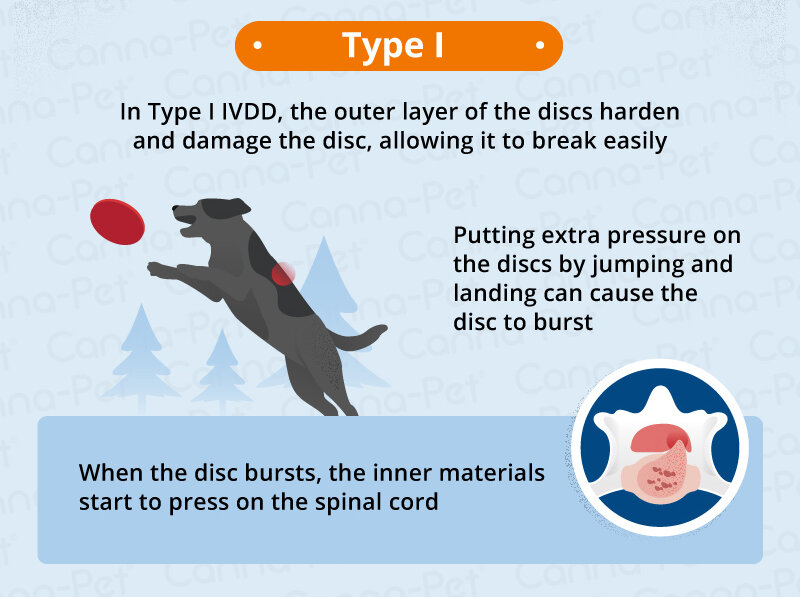French Bulldogs are a beloved breed known for their charming personalities and distinctive appearance. However, one health issue that affects this breed is Intervertebral Disc Disease (IVDD). Did you know that IVDD is actually quite common in French Bulldogs? This spinal condition occurs when the discs between the vertebrae in the back become compressed or herniated, causing pain, mobility issues, and even paralysis.
IVDD can be a particularly prevalent problem in French Bulldogs due to their unique body structure. These dogs have a compact and muscular build with a short back and a relatively long body. This physical characteristic makes them more susceptible to spinal problems, including IVDD. In fact, a study conducted by the French Bulldog Club of America found that approximately 25% of French Bulldogs may develop some form of IVDD in their lifetime. It is crucial for owners to be aware of this condition and take preventive measures to minimize the risk, such as maintaining a healthy weight, providing proper exercise, and avoiding activities that could strain the back.
IVDD, or intervertebral disc disease, is a common condition in French Bulldogs. It occurs when the discs in the spine degenerate or herniate, causing pain and potential neurological problems. While IVDD can affect any dog breed, it is more prevalent in certain breeds, including French Bulldogs. The exact prevalence of IVDD in French Bulldogs is not known, but it is important for owners to be aware of the condition and take preventive measures, such as providing proper exercise, maintaining a healthy weight, and monitoring any signs of discomfort or mobility issues.

Understanding IVDD in French Bulldogs
Intervertebral disc disease (IVDD) is a common condition that affects many dog breeds, including French Bulldogs. IVDD occurs when the discs between the vertebrae in a dog’s spine become herniated or degenerate, causing pressure on the spinal cord. This can lead to pain, nerve damage, and mobility issues for the affected dog. In this article, we will explore how common IVDD is in French Bulldogs and provide some valuable information for dog owners.
The Prevalence of IVDD in French Bulldogs
French Bulldogs are susceptible to IVDD due to their body structure and genetics. While there is not an exact statistic on the prevalence of IVDD in this specific breed, it is generally believed to affect a significant number of French Bulldogs. The condition is more common in dwarf and short-legged breeds, and French Bulldogs fall into this category.
Not all French Bulldogs will develop IVDD, but it is crucial for owners to be aware of the potential risks. By understanding the signs, symptoms, and risk factors associated with IVDD, owners can take proactive measures to prevent or manage the condition.
Risk Factors for IVDD in French Bulldogs
Several factors can increase the risk of IVDD in French Bulldogs:
- Genetics: Certain genetic factors can predispose French Bulldogs to develop IVDD. Breeding dogs with a history of IVDD increases the likelihood of passing on the condition to offspring.
- Age: Although IVDD can affect dogs of any age, it is more commonly seen in middle-aged and older dogs.
- Weight: Excessive weight or obesity can put extra strain on a dog’s spine and increase the risk of disc herniation.
- Physical Activity: Dogs that engage in high-impact activities or repetitive movements that put stress on the spinal cord are more susceptible to IVDD.
Recognizing the Signs of IVDD
It is essential for French Bulldog owners to be familiar with the signs that may indicate the presence of IVDD:
- Back or neck pain
- Reluctance to jump or climb stairs
- Weakness in the hind limbs
- Lameness
- Loss of coordination
- Inability to walk or paralysis
- Urinary or bowel incontinence
If you notice any of these symptoms in your French Bulldog, it is crucial to seek veterinary attention promptly. Early diagnosis and treatment can improve the prognosis for dogs with IVDD.
Diagnosis and Treatment Options
When a French Bulldog presents with symptoms of IVDD, a veterinarian will typically perform a thorough physical examination, including a neurological assessment. Diagnostic imaging, such as x-rays or an MRI, may be necessary to confirm the diagnosis and assess the severity of the condition.
Treatment options for IVDD in French Bulldogs depend on the severity of the symptoms and the extent of the spinal cord compression. Mild cases may be managed with rest, pain medication, and anti-inflammatory drugs. More severe cases may require surgery to relieve the pressure on the spinal cord and stabilize the affected discs.
Rehabilitation and physical therapy are essential components of the recovery process for French Bulldogs with IVDD. These therapies can help improve mobility, reduce pain, and prevent future episodes of disc herniation.
Preventing IVDD in French Bulldogs
While it is not always possible to prevent IVDD, there are measures that French Bulldog owners can take to reduce the risk:
- Maintain a healthy weight for your French Bulldog through a balanced diet and regular exercise.
- Avoid activities that put excessive strain on the spine, such as jumping from heights or rough play.
- Use a harness instead of a collar when walking your French Bulldog to minimize strain on the neck.
- Provide your dog with a comfortable and supportive bed to prevent unnecessary pressure on the spine.
- Regularly monitor your French Bulldog for any signs of pain or mobility issues.
Conclusion
IVDD is a relatively common condition in French Bulldogs, but with proper knowledge and proactive measures, it can be managed effectively. By understanding the risk factors, recognizing the signs, and taking preventive actions, French Bulldog owners can help promote spinal health and minimize the impact of IVDD on their beloved pets.
Table: Comparing IVDD Prevalence in Different Dog Breeds
| Breed | Prevalence of IVDD |
|---|---|
| French Bulldog | Estimated to be moderately common |
| Dachshund | Very common |
| Pekingese | Common |
| Pembroke Welsh Corgi | Common |
| Beagle | Less common |
Key Takeaways: How Common is IVDD in French Bulldogs?
1. Intervertebral Disc Disease (IVDD) is a relatively common condition in French Bulldogs.
2. French Bulldogs are predisposed to developing IVDD due to their unique body structure.
3. IVDD can cause back pain, weakness in the hind limbs, and even paralysis in French Bulldogs.
4. Prompt diagnosis and treatment are crucial for managing IVDD in French Bulldogs.
5. Regular exercise, weight management, and avoiding excessive jumping or stairs can help prevent IVDD in French Bulldogs.
Frequently Asked Questions
Here are some commonly asked questions about the prevalence of intervertebral disc disease (IVDD) in French Bulldogs:
1. What is IVDD and how does it affect French Bulldogs?
IVDD, or intervertebral disc disease, is a condition that affects the spinal discs in dogs. It occurs when the discs degenerate or herniate, leading to compression of the spinal cord or nerve roots. In French Bulldogs, IVDD often presents itself in the thoracolumbar region of the spine, causing pain, weakness, and potential paralysis. While it can be a serious condition, prompt diagnosis and treatment can greatly improve outcomes.
It’s important to note that not all French Bulldogs will develop IVDD, but the breed is considered predisposed to this condition. Factors such as genetics, age, weight, and lifestyle can contribute to the occurrence of IVDD in French Bulldogs.
2. How common is IVDD in French Bulldogs?
The exact prevalence of IVDD in French Bulldogs is difficult to determine, as it can vary based on several factors. However, studies have shown that IVDD is relatively common in this breed, with some estimates suggesting that up to 10% of French Bulldogs may be affected. The risk is higher in certain lines and pedigrees, so it’s essential for breeders and owners to be aware of this potential health issue.
It’s important to be proactive in preventing and managing IVDD in French Bulldogs through measures like regular exercise, weight management, and providing an environment that minimizes the risk of injury and strain on the spine.
3. What are the symptoms of IVDD in French Bulldogs?
The symptoms of IVDD in French Bulldogs can vary depending on the severity and location of the affected disc. Common signs include back or neck pain, difficulty walking or standing, reluctance to jump or climb stairs, hind limb weakness, loss of coordination, and in severe cases, paralysis. It’s important to seek veterinary attention if you notice any of these symptoms, as early diagnosis and intervention can lead to better outcomes.
It’s worth noting that IVDD can occur acutely, with sudden onset of symptoms, or chronically, with a gradual progression of signs. Regular monitoring of your French Bulldog’s mobility and behavior can help detect any changes that may indicate a potential spinal issue.
4. How is IVDD diagnosed in French Bulldogs?
Diagnosing IVDD in French Bulldogs typically involves a combination of physical examination, neurological assessment, and diagnostic imaging. The veterinarian will carefully evaluate your dog’s gait, reflexes, and pain response, and may recommend X-rays, advanced imaging such as MRI or CT scans, or myelography to visualize the spinal discs and identify any abnormalities.
If IVDD is suspected, the veterinarian may also perform a myelogram, which involves injecting contrast dye into the spinal canal to obtain more detailed images. This can help determine the extent and location of disc compression or herniation.
5. How is IVDD treated in French Bulldogs?
The treatment of IVDD in French Bulldogs depends on the severity of the condition and the individual dog’s needs. Mild cases may be managed conservatively with strict rest, pain management, anti-inflammatory medications, and physical therapy. More severe cases, especially those causing paralysis or significant pain, may require surgical intervention.
Surgical options for IVDD in French Bulldogs may include decompressive surgery to relieve pressure on the spinal cord or nerve roots, such as a hemilaminectomy or ventral slot procedure. These surgeries aim to remove or reduce the herniated disc material and alleviate compression. Post-operative rehabilitation and ongoing management are also critical for a successful recovery.

In conclusion, intervertebral disc disease (IVDD) is relatively common in French Bulldogs. While it can affect any breed of dog, French Bulldogs are predisposed to developing IVDD due to their unique body structure. The condition occurs when the discs in the spine degenerate and put pressure on the spinal cord, leading to symptoms like pain, weakness, and difficulty walking.
While the exact prevalence of IVDD in French Bulldogs is not known, it is important for owners to be aware of the potential risk and take preventive measures. Regular exercise, weight management, and avoiding activities that put excessive strain on the spine can help reduce the likelihood of IVDD. If a French Bulldog shows any signs of the condition, prompt veterinary care is crucial for diagnosis and treatment.
